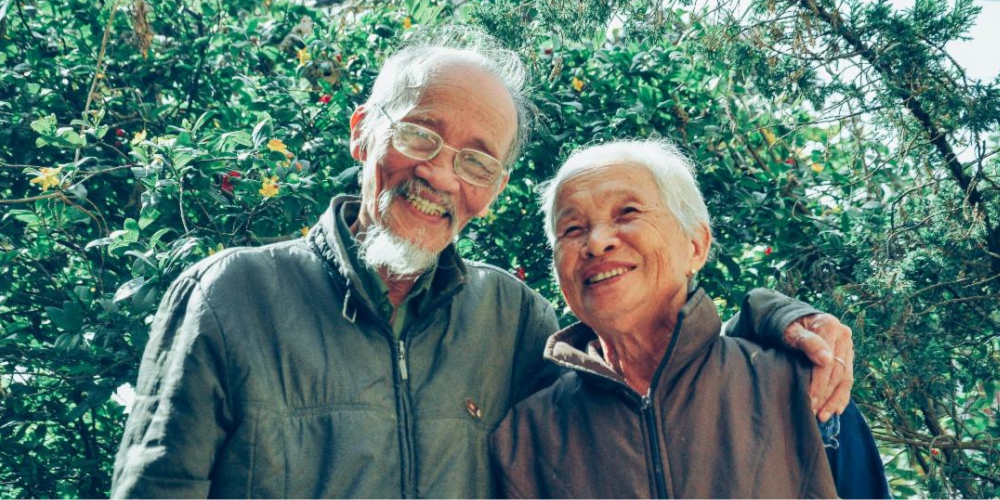Longing for Longevity
Every June, I look forward to the summer solstice, the day of the year with the longest period of daylight. It’s not always the same. In the Northern Hemisphere it shifts between June 20 and June 22. This year it’s Thursday, June 20.
For centuries, the summer solstice has been a significant day in many cultures, marked by festivals and rituals. It’s often considered a time of new beginnings and transformations, a universal symbol of light, life, growth, and the prospect of a bountiful harvest in the future. Ever since I was young, the summer solstice did feel like a significant time, although I never took part in any rituals. I suspect it mostly had to do with the end of each school year, a welcome release from the weekly schedule and feeling of freedom—and more daylight to enjoy it.
As the years have gone by, I still feel the emotional symbolism of this added light, the prospect for continued growth and vitality ahead. The term “solstice” comes from the Latin words sol (sun) and sistere (to stand still), and as I pause to mark the day when the sun seems “to stand still,” I appreciate the longevity of the day—and I hope for my own longevity.
Of course, as we get older, the “daylight” years get shorter, but for most of us, that doesn't dim our aspiration to live long lives. As a culture we aspire to longevity—even though we obsessed with staying “young” for as long as possible. Yes, quite a conundrum.
We’ve been steadily adding to human longevity since the last century, with average life expectancy in the U.S. rising from 47 years in 1900 to 68 years in 1950 to just over 76 years today. American women currently have a life expectancy of 79 years, compared with men’s, which is only about 73. Being a 70+ man, I’m thankful that according to some researchers, a 70-year-old man has more than a 50% chance of reaching age 90, if he doesn’t smoke or have diabetes (check), has a healthy weight and blood pressure (check) and exercises (check). On top of that, married men, on average, live two years longer than their unmarried counterparts (one more check).
Not surprisingly, this “longevity bonus,” has led to a lot of questions, especially since many experts predict that 100-year lives will be common for those born today. What are the factors that contribute to longevity? And once we have these increased years, what do we do with this gift of time?
Some researchers have taken the genetic path, designing studies aimed at identifying genes that play a role in extreme longevity. If these genes can be located and their effects understood, then drugs could be developed to mimic the chemical signals that they send to the body. Such discoveries might also explain perplexing cases of vibrant centenarians who’ve suffered few serious illnesses, while having smoked throughout their adult life, never eaten a special health diet, or regularly exercised. Meanwhile, other researchers believe that genetic traits account for only 20 percent of a person’s longevity and are looking at how health and lifestyle factors affect human lifespan.
Perhaps the most widely known longevity research is the Blue Zones project, based on research by National Geographic Explorer Dan Buettner, who identified areas around the world where people are living longer and healthier lives. Blue Zone studies have identified the “Power 9”—nine healthy lifestyle habits that many residents living in these regions share, such as:
- making movement a natural part of your day;
- decreasing stress to counter chronic inflammation associated with age-related diseases;
- eating largely plant-based diets with small amounts of meats, lots of fruits and vegetables, whole grains and beans;
- and connecting with friends and family in your community, choosing social circles that support healthy behaviors.
As we age, many of us have recognized the roles that fitness, a rebalanced diet, stress reduction and regular social connection can play in boosting our lifespan. But there’s one of the nine habits that I believe is often undervalued and overlooked in our elder years: Knowing your sense of purpose. In the Blue Zone of Okinawa, Japan, residents call it ikigai. It’s written with two characters that stand for “living” and “value.” Ikigai means making your life worthwhile, living in a way that provides pleasure for you and value to those around you. In short, “why I wake up in the morning.”
A growing number of research studies show that having meaning in our lives is linked with longevity. There is a deep human desire to lead a life of purpose, to do something useful—and it does not diminish in elderhood. Researchers, like psychologist Scott Fisher and psychoanalyst Ben Green, authors of the “Aging Wisely Project,” underscore the continuing importance of purpose as we age. Fisher and Green (who have appeared on several 45 Forward podcasts) include purpose among their cadre of Healthy Habits that sustain us, even after major losses or life disruptions in our later years.
AARP has established its Purpose Prize, which honors extraordinary people ages 50 and older who tap into the power of life experience to make a difference. Purpose Prize honorees are examples of “a simple, yet profound truth,” says AARP CEO Jo Ann Jenkins. “When we find our sense of purpose — that certain something that gives us a reason to get up and get going every day — we not only give meaning to our own lives, we make the world a better place for everyone.”
But we don’t need to reach for a Purpose Prize to experience the prize we’re awarded with purpose: longevity with meaning. Your purpose can be small or large, a way you can articulate your values, your passions, gifts and talents—and it can continue to evolve in your 60s, 70s, 80s, and yes, 90s. For me, my later-life purpose is something I discovered only a few years ago: I wanted to devote myself to honoring those who have taught me and cared for me by providing resources to help others age successfully in the second half of life—writing the Caregiving Navigator, a comprehensive guide for family caregivers, and producing my 45 Forward podcast for all of us who want to continue moving forward with purpose. Sure, there are days when I want to “retire,” when my activities of daily living will include reading books in a hammock or taking long, unhurried walks. But we’re never too old to pursue ikigai.
—Ron Roel


